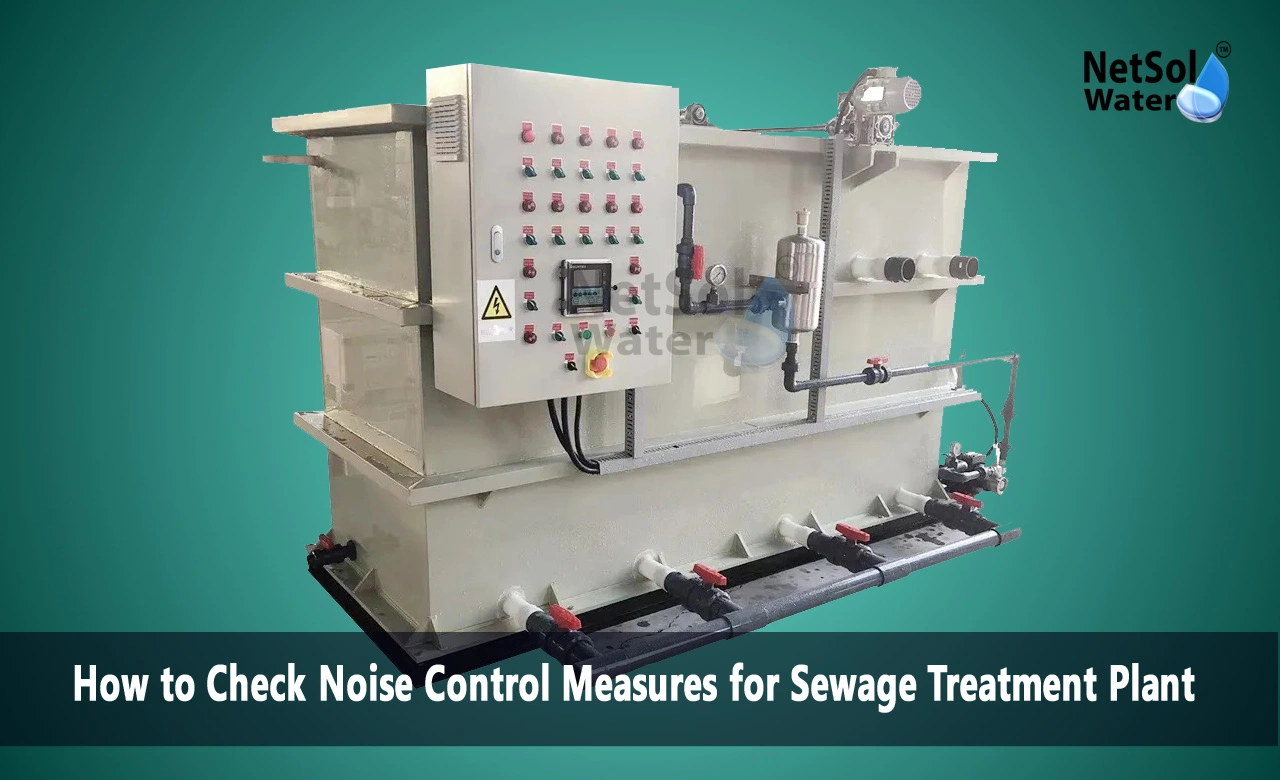How to Check Noise Control Measures for STP Plant?
Sewage treatment plants play an important part in maintaining the health of the ecosystem by purifying wastewater before releasing it into the environment. However, there are certain plants that have the ability to produce noise, which might disturb those living or working nearby it. Therefore, it is essential to keep noise levels in the STPs to a minimum in order to protect people's health in and around the plant. Today we will attempt to address a variety of approaches to noise control in sewage treatment plants.
Principal Causes of Noise in Sewage Treatment Plants
· Pumps and Blowers: Pumpers and blowers are two examples of the mechanical systems used in sewage treatment plants. These systems handle the transportation and processing of wastewater and are often the cause of noise pollution.
· Aeration Systems: Another significant source of noise is aeration systems, which mix air with wastewater to help break down organic debris.
· Traffic Noise: The noise is also produced by the movement of different cars and trucks inside the factory, including those that are carrying chemicals and sludge.
Noise Control Measures
· Use of Soundproof Enclosures: Use of barriers or sounds shields around machines that produce noise such as pumps and blowers can significantly control noise pollution. These enclosures are made specifically to contain and damp sound to ensure it does not spread to other areas.
· Installation of Mufflers: Noise can be minimized in aeration systems and other equipment used by fitting them with mufflers that be applied to control noise caused by air circulation. These devices function through the aspects of sound waves and remove energy from them.
· Regular Maintenance of Equipment: Some of the measures that can be taken to reduce noise in the environment include maintaining all machines to avoid the noise produced due to their malfunction. Normal and properly functioning machinery are less noisy and therefore regular checks should be conducted on the equipment.
· Vibration Isolation: Another method of noise control measures includes use of vibration isolation pads or mounts below equipment that vibrate and emit noise. This way helps to reduce the transmission of sound through the structure of the plant.
· Barrier Walls and Fences: Erecting barrier walls or fences around the sewage treatment plant can help block noise from reaching nearby areas. These barriers can be made from materials that are effective at absorbing sound.
· Proper Site Planning: Some of the practical solutions can include minimizing the location of the equipment that produces noise during the layout of the sewage treatment plant such that those which produce noise are located far from areas that have many residents.
· Use of Quiet Technology: As much as possible, ensure that you are using as low decibels as possible when acquiring the machinery as well as the equipment. With a rapid advancement in technology, it is now general to have low-noise pumps, blowers, and several other equipments in the sewage treatment plants.
· Operational Scheduling: Reduced impact of noise can be achieved by ensuring that noisy operations that may inconvenience the residents are carried out during periods of low irritation such as day time as opposed to night time.
· Community Engagement: Whenever people are informed on the steps that are in place to ensure there is minimization of building noise, they are less likely to complain. Informing the residents of the planned noisy activities can also assist in reducing or at least preparing the affected residents for the same.
Advantages of Noise Control Measures
· Improved Quality of Life: Lowering the levels of noise also benefits the residents living close to the sewage treatment plant because of increased quietness.
· Enhanced Worker Safety and Comfort: The employees at the plant likewise benefit from the noise control measures by getting a safer and more comfortable workplace.
· Compliance with Regulations: Most areas have standard measures for noise pollution and these are very strict especially within the residential areas. Thus, sewage treatment plants are in a position to follow these regulations and therefore they can also prevent penalties concerning noise control.
· Positive Community Relations: Measures to contain noise mean that the plant will be a good neighbor and this is good for the public relation of the plant.
Conclusion
Sewage treatment plant requires limiting of noise since disturbance contributes to the negative effect of the community and workers within the plant. Some of the ways that could be used to solve the problem include soundproof enclosures, mufflers, regular maintenance, and good sewage treatment plant site planning. They also help in providing a good quality of life to people living around it, addressing the noise pollution control laws and maintaining good relations with the community.
Do you need an advice or assistance on selecting the best water and waste water treatment unit? We have solutions for all your problems!
Let us know your problem, our experts will make sure that it goes away.
For an assistance or related query,
Call on +91-965-060-8473 Or write us at enquiry@netsolwater.com



